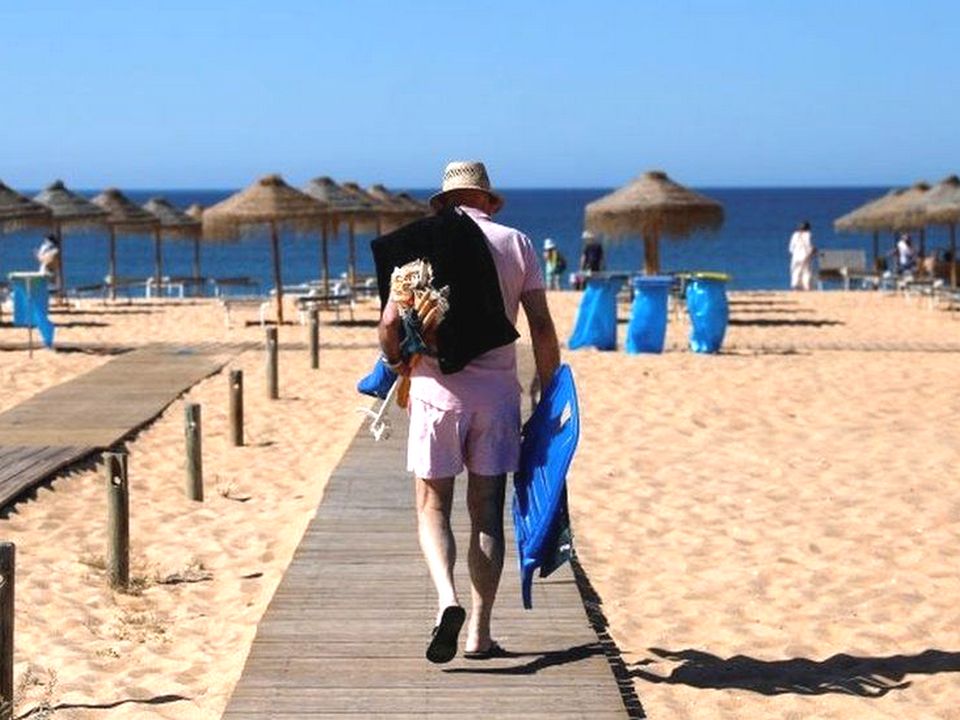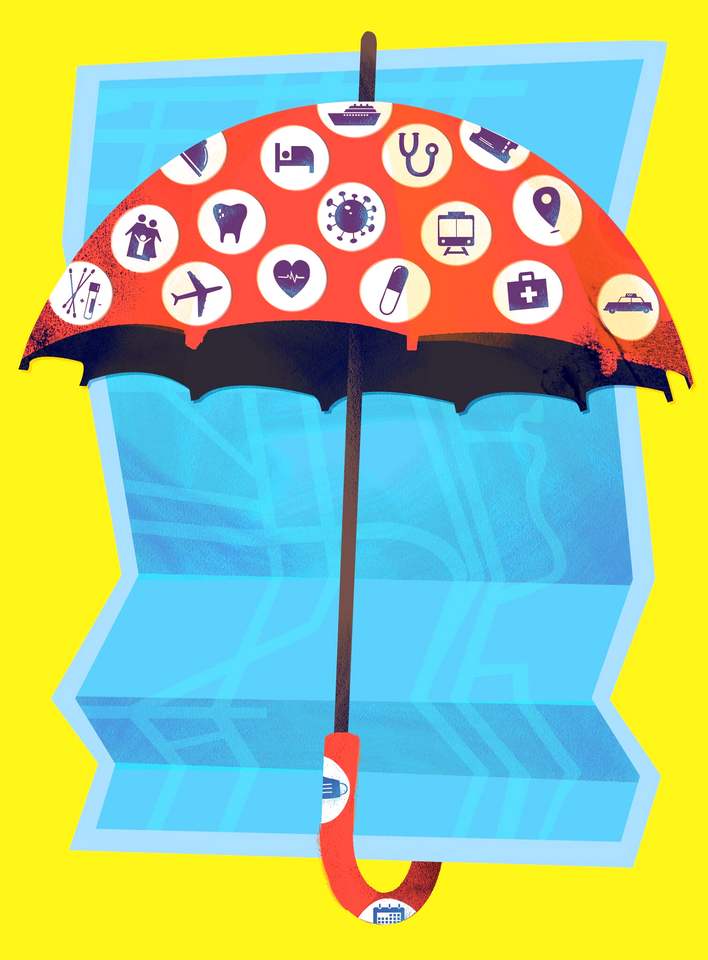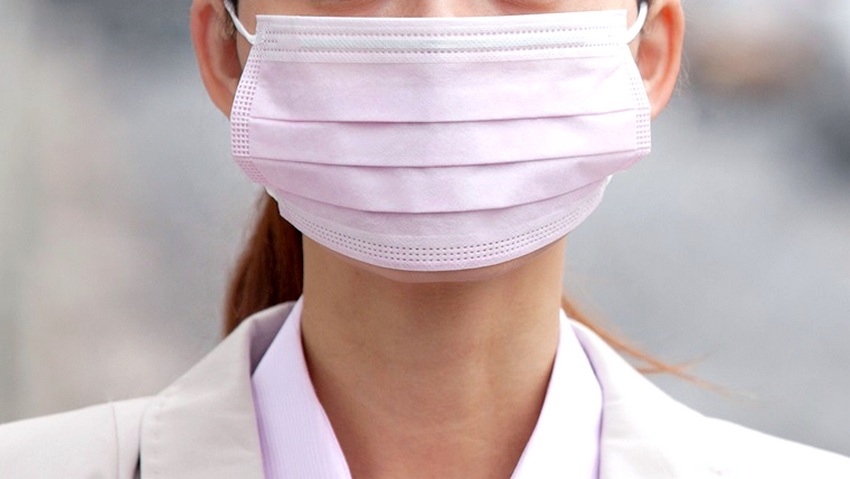| |||
|
|
|
|
|
|
|
|
|
|
| |||
|
|
|
|
|
|
|
|
|
|

Thailand's re-opening to vaccinated foreign tourists marks a major easing of border controls for Asia, where governments have been far slower to roll back coronavirus travel curbs than in much of the West.
Here is a look at which countries are opening up across the Asia-Pacific region and those staying sealed off from the world.
- Southeast Asia -
Thailand will allow vaccinated travellers from 46 countries and territories to enter the kingdom without quarantining from Monday, as it seeks to revive its vital tourism industry.
Other parts of the region -- which largely escaped the pandemic's initial wave, only to be hit hard this year -- are following its lead, albeit at a slower pace.
Business hub Singapore has started quarantine-free travel for fully vaccinated travellers from 10 countries, including the United States and several European countries, and will add more soon.
Indonesia re-opened the resort island of Bali this month to tourists from select countries although, with travellers still required to do a five-day quarantine on arrival, the scheme has had a slow start.
Vietnam plans to allow foreign visitors entry to the holiday island of Phu Quoc from next month and Malaysia has a similar plan for Langkawi island, while Cambodia will reopen beach spots Sihanoukville, Koh Rong and Dara Sakor from Nov 30.
Some countries, including the Philippines and Myanmar, remain closed to foreign tourists.
- East Asia -
Mainland China, where Covid-19 first emerged last year, remains closed to overseas tourists, as is Japan.
South Korea has started accepting visitors from 49 countries. A negative coronavirus test is required for all arrivals, with a limited exemption from a 14-day quarantine for those vaccinated in South Korea.
Some of the world's toughest measures have been implemented in Hong Kong -- with a maximum 21-day quarantine for incoming travellers -- which has kept virus cases low but crippled the travel industry.
- South Asia -
Recovering from a devastating surge earlier this year, India re-opened for foreign tourists on charter flights this month and will allow in visitors on all flights from mid-November.
Fully vaccinated travellers no longer have to undergo home quarantine, provided they are arriving from countries with which India has reciprocal arrangements for acceptance of WHO-approved vaccines.
Last month, Nepal started issuing visas on arrival for vaccinated tourists and dropped quarantine requirements as it seeks to lure back foreign trekkers to its mountains.
More than a million tourists visited the Himalayan country in 2019 -- but numbers dropped by 80% last year.
Among the first countries to reopen borders was the popular holiday destination of the Maldives, which started allowing in foreign tourists in July last year.
The number of tourists visiting the Indian Ocean atoll nation recovered to 500,000 last year following the re-opening, and authorities expect 1.5 million holidaymakers this year -- just shy of the figure in 2019.
Sri Lanka opened its international borders for fully vaccinated tourists without any quarantine requirements on Oct 7, while Pakistan allows in foreign visitors as long as they have proof of vaccination and a negative Covid-19 test.
- Australia and the Pacific -
Australia introduced some of the world's toughest border restrictions in response to the pandemic, banning citizens from travelling overseas without permission.
But the government announced Wednesday that the ban would be lifted, with the country's border also set to open to skilled workers and international students by year's end.
New Zealand remains closed to foreign visitors, with no date for reopening.
The South Pacific nation of Fiji, whose economy is heavily tourism-dependent, will allow vaccinated travellers from countries across Europe and Asia to enter quarantine-free, as well as those from the United States, starting Dec 1.

Everyone knows why Thai authorities are insisting on medical cover for all foreignvisitors. In 2019, according to the public health authority, unpaid hospital bills amounted to 448 million baht and rising. That, of course, was in the pre-pandemic era, before Covid coughed its way into the headlines.
From November 1, most foreigners entering the country will need Covid-specific insurance to the value of US$50,000, which replaces the former US$100,000 floor, presumably to encourage international tourism. The exceptions will be foreigners working officially with Labour Department permits since they pay a percentage of their salaries into the government's social security fund which covers hospitalization.

Initially, the civil aviation authority stated the insurance must be from a Thai company, but we later found out that foreign-based companies are also eligible. We have yet to see the details of any newly-devised US$50,000 policy. For example, the website http://covid19.tgia.org/, representing the Thai General Insurance Association, has not yet been updated.
The obvious questions about refunds if a foreign trip is cancelled, what happens if you test positive for the virus on arrival in Thailand and what hospital treatment (and where) you can actually expect are still grey areas. Policies also need to clarify if fees are automatically paid, or if you must pay the hospital bill first and claim back the cash in your own time. Each insurance company will differ significantly on the detail. You can bet your life on it.

The current Thai proposals excuse most entrants from having non Covid-related, general health insurance. So if you break your leg on holiday, or catch significant malaria, you won't be covered unless you take out a separate and expensive add-on or separate policy. In other words, the long-standing issue of stranded farang desperately needing a heart bypass and pleading for crowd funding to get back home is not being addressed.
However, compulsory general medical insurance might be still required for two groups who have hitherto needed it on top of Covid cover. They are the one year O/A retiree visa holders and those holding the Special Tourist Visa which allows tourists to remain in the country up to nine months. To find out more, we will have to wait for embassies to update their websites giving detailed instructions on visas.
Unless there is a seismic shock about to descend on the expat population, foreigners extending their visas or obtaining extensions of stay at Thai immigration offices will not be required to show any insurance documentation. Unless, of course, they hold the O/A annual visa which is always and mysteriously in a category of its own. Moreover, compulsory vaccination for expats remaining in Thailand is not a criterion for staying here. Not yet, that is.
A lot of medical insurance for travellers is aged-capped. It may be difficult for some intended visitors to Thailand to qualify for entry once they reach 65 or 75 even though they are the wealthiest target group according to marketing research. In the post-pandemic world, health insurance in some form will become virtually universal for international travellers. If Thailand is to make a success of its opening-up policy, a host of medical detail awaits clarification. And sooner rather than later.

The Covid-19 pandemic has heavily affected the livelihoods of Phuket residents. Has the Sandbox Programme improved their situation?
Mike has been a taxi driver in Phuket for the past 15 years, driving tourists to and from the airport. But since Thailand closed its borders to international tourism, he earns less than half of what he used to.
"It is not even enough to cover living costs", he said, "like paying rent or maintaining my car."
He is not alone.
Mai, a massage therapist at one of the most popular spas in the island, has seen her salary drop dramatically over the past two years, yet she feels fortunate to have kept her job.
"Before the pandemic there were 120 of us. Now we are only 8."
Due to its economic reliance on tourism, Phuket has been one of Thailand's most affected provinces during the pandemic.
The announcement of the Phuket Sandbox Programme, which allows tourists to enter the island without completing a quarantine, signalled to many locals the end of a long and difficult period.
"I think the Sandbox is good," said Ratchanee, who has kept her travel agency open over recent months despite minimal income.
"We cannot close Phuket all the time. We have to open, and when we open, find a way to deal with Covid together," she said.
But three months after the launch of the Sandbox Programme, few are seeing significant differences in their situations. While there are more tourists in the island, numbers remain low when compared to before the pandemic.
"There used to be lines of tourists waiting to come in", says Wan, who works in a souvenir shop. "Now, some days nobody buys anything […] it's still quiet."
Mai explains that before Covid, her spa used to receive entire busloads of tourists every single day. Now, even after the Sandbox, "most of our customers continue to be locals," she said.
An additional hurdle is that official guidelines advise tourists to only use services with SHA+ safety accreditation, which is not accessible to all businesses.
"I am not able to offer my services to most [tourists] because as an independent driver I do not have an SHA+ license," said Mike, "It will be a long process to get customers."
Ning, a yoga teacher, explains that a large part of her income used to come from tourists who requested private classes in their rented villas. As the Sandbox Programme requires tourists to stay in SHA+ hotels, this part of her income has not recovered.
"It is difficult for me to teach online," she said, thinking about alternatives. "Many of the positions I teach require me to manually adjust the student, which is only possible in face-to-face classes."
Ning has begun to sell coffee from her studio as an alternative source of income.
Like her, many other small business owners previously relying on foreign tourism have adapted their business models to the current situation.
Somaung, whose business selling beach hats failed in the early stages of the pandemic, became aware that the government was offering free space for food vendors by the beach. He began to sell dried squid to local beachgoers.
"It's a good business because everyone still needs to eat," he said. But "now most of my customers are Thai, so the Sandbox has not really affected me."
Although there is little tangible change in people's livelihoods at this stage, many have high hopes for the situation after November which will see the full reopening of Thai borders to tourists from countries deemed low risk.
"I hope that as the Covid situation improves, people will feel comfortable enough to come to the studio and learn in person again", says Ning, who is developing new marketing materials to publicize her yoga classes.
Similarly, Mai says, "I love my job and I want to continue working as a massage therapist. I just hope that after this year, enough tourists will come back to cover our living costs. Though maybe not busloads as we had before," she said. "That was too much".
Others are more sceptical about efforts to reinvigorate tourism: "the Sandbox supports big chain hotels, but the locals don't get anything," said Dam. "In a couple of months there will be no more waves. I will stop surfing and work in the fishing industry until the situation improves."
By Ana Norman Bermudez









By
Maya TaylorThe Health Ministry says the discovery of the new Delta Plus variant in Thailand will not affect the country's November 1 re-opening. Sathit Pitutecha, deputy public health minister, says the mutation has not been categorised as a variant of concern.
"Because viruses mutate all the time, only a mutation that causes severe illness and makes the virus spread easier or become resistant to drugs that treat the Alpha and Delta variants, is considered significant."
He goes on to say that the discovery of the variant in Thailand was reported for the sake of transparency, as it's important to keep potential international visitors informed. Delta Plus was reported in a male patient in the northern province of Kamphaeng Phet. According to a Bangkok Post report, the man was treated and has since recovered.
The patient had no history of being overseas and had travelled to Kamphaeng Phet from Ayutthaya before he developed symptoms. He was tested by the Armed Forces Research Institute of Medical Sciences and officials are tracing the man's close contacts to determine if any are infected.
However, Supakit Sirilak, from the Department of Medical Sciences says the Delta Plus variant in this case is AY.1 and not AY.4.2, which is spreading in the UK and is thought to be up to 15% more infectiousthan the original Delta variant.
For more information on how to get into Thailand during the pandemic, CLICK HERE.
SOURCE: Bangkok Post

By
Neill FrondeExpert predictions about the Delta variant of Covid-19 becoming the dominant strain in Thailand by August came true several months ago, but testing shows that the Delta variant is now responsible for 98.6% of all new infections in Thailand. This data from the Department of Medical Science comes as the Delta Plus strain has been found in Thailand and may be up to 15% more transmissible.
Testing in the week of October 16 to 22 found that nearly 99% of infections were of the Delta variant. Just 0.8% of new infections were the Beta variant, and 0.6% were the Alpha variant. In the Deep South, where the provinces have been experiencing a surge of Covid-19 cases in recent weeks, tests revealed that 96.9% of new infections are the Delta variant, with the Beta variant making up 2.3% and the Alpha variant 0.8%.
The new Delta Plus variant causing concern is one of 47 Delta Plus subvariants identified so far worldwide. 19 of them have been uncovered within Thailand so far although researchers say none of them have shown any signs that they are more resistant to vaccines or faster spreading than the main Delta variant. The substrain that has been found to spread 15% faster is Delta Plus AY 4.2, a strain that the British government is monitoring but has not yet been found in Thailand.
Domestically, Kamphaeng Phet Providence has been uncovering Delta Plus variants for one month now, all of which have been the AY 1 subvariant, which has not been shown to be more transmissible or vaccine-resistant, with no cases of the AY 4.2 variant found.
Thailand has also seen 18 people infected with a subvariant of the Alpha strain known as E484K, identified late last month on September 27. Two of the infected patients were in Chiang Mai prison, 4 were Thai people in Chanthaburi and Trat, and the remaining 12 were Cambodian migrant workers. All 18 patients have been released from medical care after being cured of the strain of Covid-19.
SOURCE: Nation Thailand
Thai Meteorological Department Warns of Tropical Storm, Heavy Rains Ahead Goongnang Suksawat Tuesday, 24 December 2024, 12:28 PRESS RELEASE:...